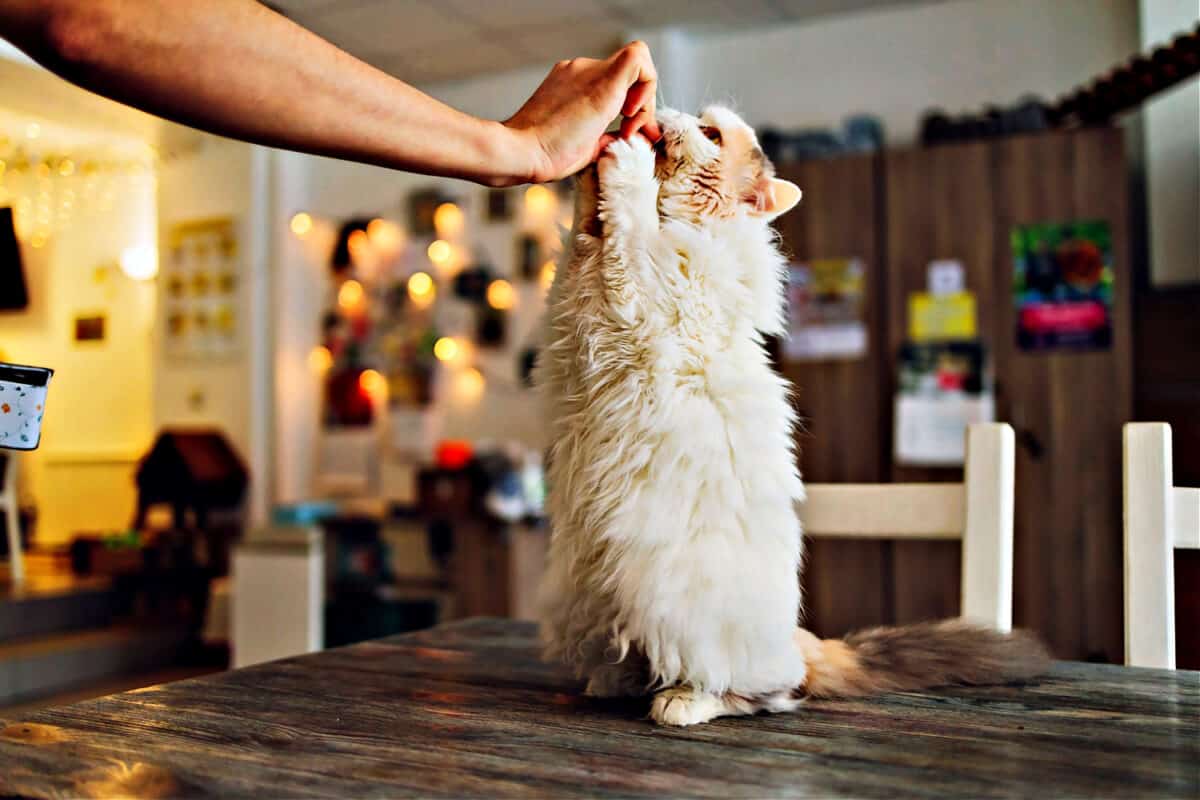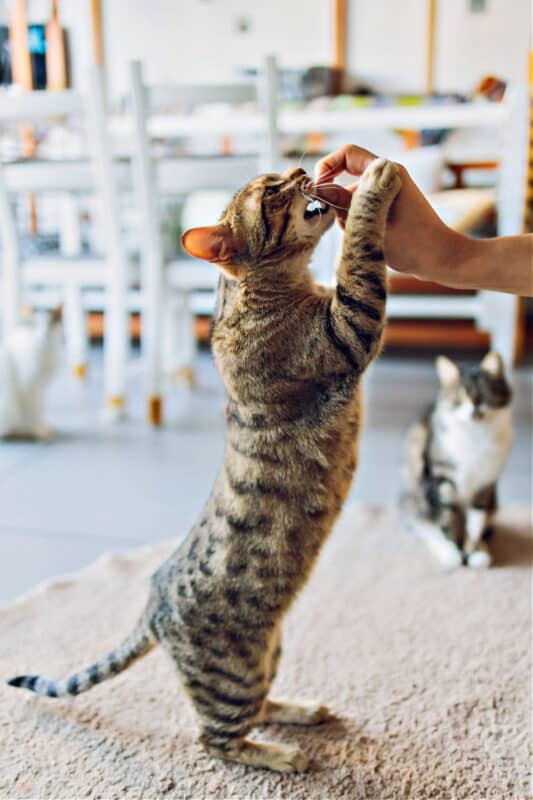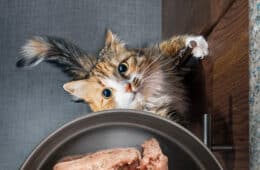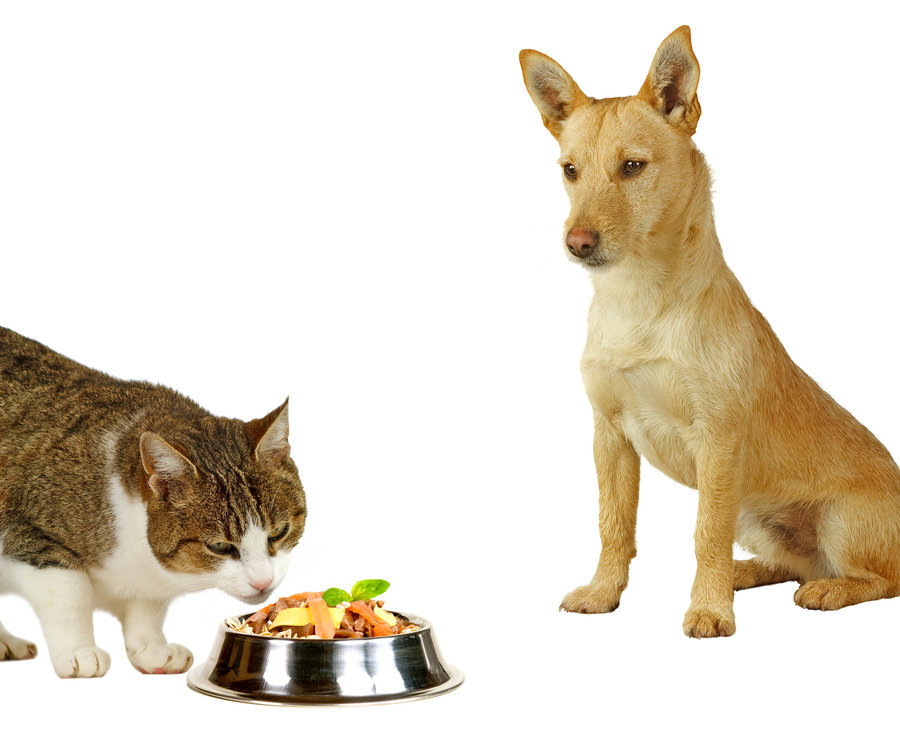Turkey, the star of holiday feasts, sure tempts our taste buds. But wait, what about our furry friends? Can you indulge your cat with turkey treats? Well, hang on to your cat's dish, we've got some meaty insights coming your way.
Our cats are an inseparable part of our families, and it's only natural to want them to be part of the holiday feast. But should they be munching on turkey, just like us? Before you start carving a special serving for your cat, we've got some food for thought.
In this article, we'll cover the do's and don'ts of feeding turkey to cats, keeping their health at the forefront. From the dangers of turkey bones and skin to the potential hazards of gravy and side dishes, we'll cover it all.
And what if your kitty has health conditions? Well, we've got that covered too.
As a cherry on top, we'll serve up some delectable, cat-friendly alternatives to holiday turkey treats. Stay tuned as we dish out all the tips you need to ensure a safe and joyful feast for your feline friend.

The Holiday Table: Is There A Seat For Your Cat?
While tempting, it's crucial to remember that holiday treats are for humans, not cats. Our whiskered pals may not grasp the concept of holidays, and frankly, they don't care. They're content with their routine, and disruptions, especially dietary ones, could upset their tummy.
But hey, before you dismiss the idea, here's something to ponder. Turkey isn't just tasty; it's packed with nutrients that cats need. So yes, a small treat could be on the cards for a healthy cat.
But we must tread carefully. Safety rules must guide our generosity. The aim? To give your cat a little holiday spirit, without putting them at risk. So how do we do this? Read on, we're about to explore.
Safety Rules For Feeding Turkey To Cats
1. Don't feed treats, including turkey, if your cat isn't well.
Does Kitty suffer from any medical conditions? If so, you should consult your vet before offering anything new, including turkey. Underlying medical conditions such as diabetes, liver, and pancreatic disease, IBD, and food sensitivities all call for very specific diets. Don't risk a flare-up for a few bites of turkey. It's simply not worth it.
2. Don't give too much.
You are giving a treat, not food, so limit the quantity. Do not offer more than an ounce of turkey, at the very most.
3. Avoid bones.
Cooked bones are extremely dangerous to cats. They are brittle and can injure the cat's delicate throat, esophagus, and intestines.
4. Avoid skin.
Not only is the turkey skin very high in fat content; it is also salty. Stick to boneless and skinless turkey meat.
5. Skip the gravy and side dishes.
Gravy is not only rich in fats and salts, but it also contains onions and garlic. All of these can be harmful to cats, so are best avoided. Even if your cat happens to show an interest in broccoli, potatoes, or cranberries, make sure he doesn't eat any of them.
Various vegetables contain chemicals that are not healthy for cats and can trigger pancreatitis in some cats.
6. Raw? Only if you're feeding raw already.
Yes, some people successfully feed their cats a raw diet. A raw-fed cat has been transitioned to raw nutrition gradually and her body has learned to handle the extra load of potential pathogens.
If your cat is not used to eating raw meat, the sudden introduction could cause diarrhea, vomiting, and possibly a bacterial gut infection.
7. Discard leftovers properly.
Prevent Kitty from accidentally ingesting cooked bones, skin, gravy, or even the string used to tie the turkey's legs together.
Don't leave these appetizing leftovers unattended in the trash bin. Make sure you wrap them up and dispose of them properly.
SIGN UP FOR THECATSITE'S EMAIL UPDATES >
Turkey-flavored cat food
If you want to keep things safe and let your cat enjoy turkey while still consuming a balanced diet, you can try a can of turkey-flavored cat food. It's a safe way for a healthy cat to enjoy the taste of turkey.
It's wise to stick to a brand that your cat knows and likes. As always with feeding cats, it's best to avoid changes when possible.
Here are some popular options for turkey-flavored canned foods. The last one is especially festive!
Fancy Feast Gravy Lovers

Click here to order on Amazon.
Sheba Perfect Portions Turkey Entree Pate in Natural Juices
Nature's Variety Instinct Limited Ingredient Diet - Turkey Formula
Merrick even has a special edition of Thanksgiving turkey cat food:
Merrick Thanksgiving Day Dinner

Wrapping It Up: A Quick Recap
As we draw to a close, let's summarize what we've discussed. The holiday season is a time for indulgence, but remember, your cat's well-being comes first. Yes, a sliver of turkey can be a festive treat, but it needs to be served safely.
Make sure the treat is boneless, skinless, and served in a small portion. If your cat has any health issues, check with your vet before adding anything new to their diet.
Steer clear of bones, skins, gravy, and certain side dishes that can harm your cat. If you're feeding raw, ensure that your cat is accustomed to it. Always dispose of leftovers properly to prevent accidental ingestion.
For a safe and balanced option, consider turkey-flavored cat food. It's an enjoyable treat that also ensures nutritional balance.
Remember, a little caution goes a long way in ensuring a joyful holiday season with your whiskered family member. Take these tips to heart, and you'll be able to share the festivities with your cat without compromising their health.
Keep these guidelines in mind, and your holiday will truly be a time of joy and celebration for every member of your family, including your beloved cat.
SIGN UP FOR THECATSITE'S EMAIL UPDATES >
We hope you have a safe and enjoyable holiday season with your pets! More safety tips for cat owners are available here:
Keep Your Cats Safe During The Holidays
Note: We may get commissions for purchases made through links on this page.







11 comments on “How To Safely Pamper Your Cat With Turkey Treats”